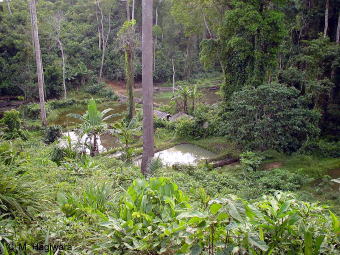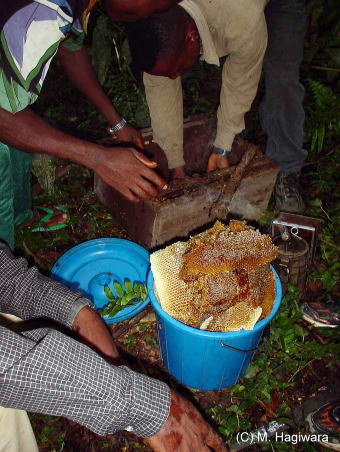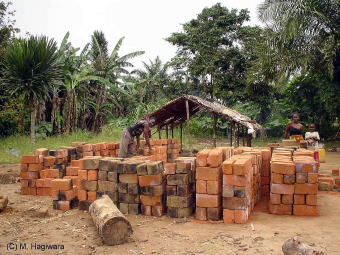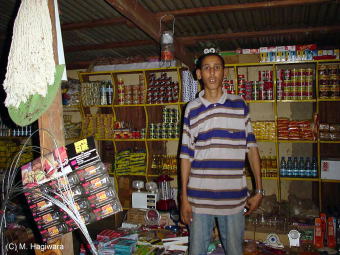|
| Village
life −Work 2 |
| Many
villagers, the young and the old, are complaining that there is no job
in the village. However, those who are ambitious try to start business
to earn a living. |
| |
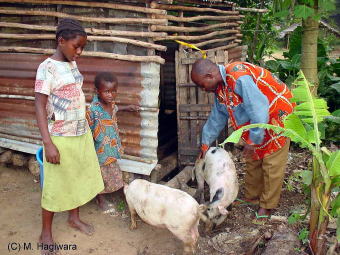 |
|
|
They keep chickens
and goats as livestock, but mostly eat them on celebratory occasions.
Only a few pigs were kept in two households. Pople prefer to get bushmeat
in the forest, which is much easier for them. |
|
Congolese are fish-loving
people, but fishing in the national park is prohibited and fresh fish
are very rare in the village. Some people have started raising fish by
constructing ponds with water from a river. In the ponds of this photo,
fish had not grown enough to be sold in the market. |
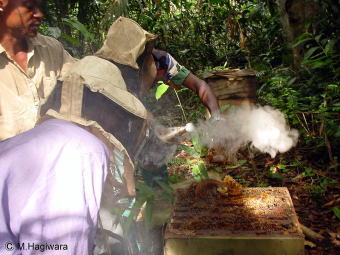 |
|
|
| A group of villalgers
have beehouses. They wish to enhance apiculture more, because collecting
honey from wild honeycomb is not good for ecology of bees, and also it
destroys tree itself. |
|
However, they lack
equipment and funding, and are forced to take honey with bear hands. There
is demand for honey as villagers believe it is good for health. |
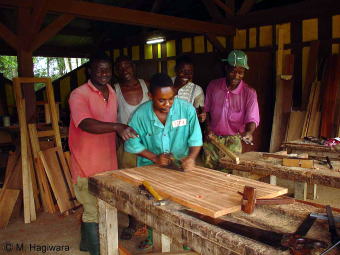 |
|
|
| A carpentry shop started
by the national park's project. They produce not only facilities of the
park but also furniture to order of villagers. |
|
A brick maker. These
hard-burnt bricks are expensive and mostly used for facilities in the
park. For houses, mud bricks are commonly used. |
 |
|
|
There
are some bakeries in the village. They make simple bread only, but bakeries
are flourishing as people can eat bread as snack. They sell one for 100FCFA,
which is equivalent to US$0.2. |
|
Some
shops sell various kinds of goods from food like tins to daily commodities
and clothes. They are run not only by Congolese but also by West Africans
from Senegal, Mauritania and the rest. |
|
Daily
diet Work
1 Work 2 Houses & public
facilities Ceremonial
functions
Entertainment Fashion
& Children Social
and political issues
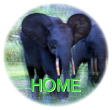 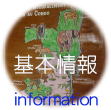 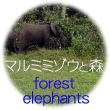 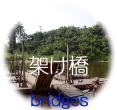
|

